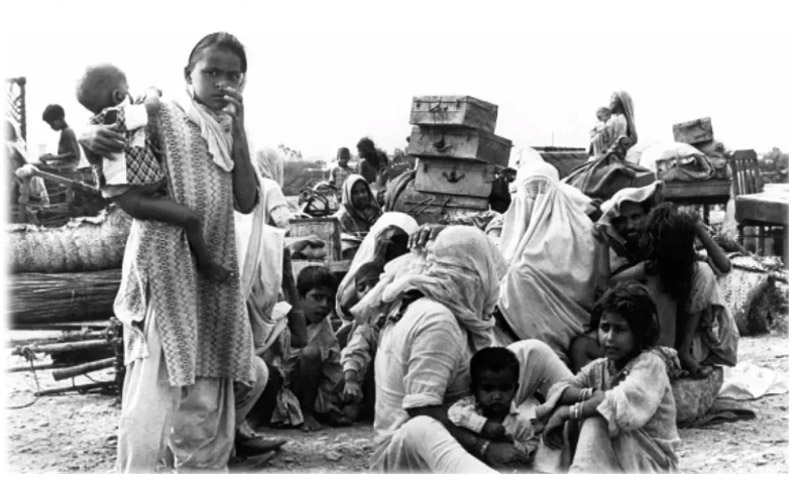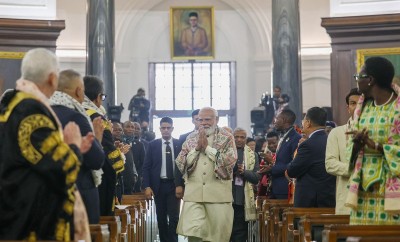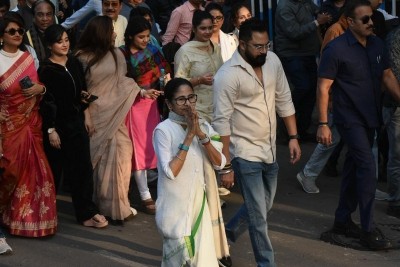 Sikh Women
Sikh Women
Forgotten sisters: The marginalization of Sikh women in Pakistan
As we mark the seventy-fifth anniversary of the 1947 partition, it is essential to reflect on the horrors that accompanied the violent separation of the subcontinent.
While the partition led to the creation of India and Pakistan, it also resulted in one of the largest mass migrations in history, with almost fourteen million people displaced, leading to widespread suffering and trauma.
However, the impact of the partition on women, specifically Sikh women, continues to be overlooked in historical accounts and mainstream discourse.
A feminist reading of the post-partition experience of Sikh women in India and Pakistan reveals stark differences in their plight. While women in India have made significant strides since the partition, those in Pakistan continue to face persecution, marginalisation, and violence.
The Indian Constitution guarantees women’s rights, including education, health, and employment.
Significant efforts have been made to increase women’s representation in politics, business, and public life, creating an inclusive and progressive environment. As a result, many Sikh women in India have excelled in various fields, breaking social, political, and economic barriers to success.
In India, Sikh women have excelled in various fields, breaking through barriers to achieve personal and professional success. For instance, Harsimrat Kaur Badal has become a notable politician in India and served as the Union Cabinet Minister of Food Processing Industries.
Likewise, the famous stand-up comedian Bharati Singh has become a household name; she is one of the few talented comediennes who has carved a separate niche in a male-dominated genre.
There are several more examples of stellar individuals in their craft, such as Dolly Guleria, known as “The Nightingale of Punjab,” and Rani Balbir Kaur. These examples demonstrate that women in India, including Punjabi women, can overcome societal barriers and succeed if recognised and provided with equal opportunities.
On the other hand, in Pakistan, Sikh women have suffered continued persecution and marginalisation, particularly since the rise of fundamentalism in the country.
In addition, women in Pakistan are deprived of fundamental human rights, education, and access to health care, as women’s health remains low on the state’s priority list.
Moreover, forced marriages and honour killings continue to be rampant, with families pressuring women to marry within the community.
Sikh women in Pakistan have been subjected to violence, including rape and sexual abuse, with no legal or institutional support to address their plight.
The country has a dismal record of gender equality, with women facing systemic discrimination, violence, and oppression.
In addition, the patriarchal nature of Pakistani society continues to restrict women’s autonomy, limiting their right to education, healthcare, and decision-making.
The country’s political environment exacerbates the plight of Sikh women in Pakistan.
The government has been unable to protect women’s fundamental rights, and the justice system has proven ineffective in finding perpetrators of gender-based violence.
As a result, rape, honour killings, and forced marriages are common in Pakistan, with women having little or no legal recourse.
For instance, Jagjit Kaur, a young Sikh girl, was kidnapped and forcibly converted to Islam in Pakistan in 2019.
Despite the widespread protests, the Pakistani government failed to return Jagjit Kaur to her family and tried to justify her illegal marriage to a Muslim man.
A similar case was reported in 2020 when a 17-year-old Sikh girl was abducted, forced to convert to Islam, and married a 30-year-old Muslim man.
Again, Pakistani authorities failed to take legal action against the perpetrators despite widespread protests and international condemnation.
These cases highlight the desperate situation of Sikh women in Pakistan, where the government has failed to provide the necessary protection and support to ensure their safety and dignity.
The plight of Sikh women in Pakistan must be urgently addressed.
The Pakistani government must acknowledge the gender-based violence and oppression faced by Sikh women and take measures to protect them.
Efforts must be made to promote gender equality, increase women’s representation in political and public life, and create an inclusive and progressive environment that empowers women and ensures their safety, dignity, and autonomy.
Only then can we build a just and equitable society where women, including Sikh women, can thrive, achieve their potential, and live with dignity.
It is critical to reflect on the experiences of Sikh women and the challenges they face even today. While India has made significant strides in empowering women, especially Sikh women, Pakistan is still on an active mission to marginalize them further.
The South Asian region must re-commit to protecting women’s rights, condemning violence against them, and creating a socio-political environment that is inclusive and conducive to their progress.
A conscious commitment towards greater gender equality is imperative to building a just, equitable society free from gender-based discrimination.
(Image and Text: Khalsavox.com)
Support Our Journalism
We cannot do without you.. your contribution supports unbiased journalism
IBNS is not driven by any ism- not wokeism, not racism, not skewed secularism, not hyper right-wing or left liberal ideals, nor by any hardline religious beliefs or hyper nationalism. We want to serve you good old objective news, as they are. We do not judge or preach. We let people decide for themselves. We only try to present factual and well-sourced news.







